With May right around the corner, farmers’ markets are starting to open up all around the country. Sadly, I still have a few more weeks until my beloved Oak Park Farmers’ Market, home of delicious, freshly made doughnuts, begins. I can hardly contain my excitement. For those of you in warmer climes, the wait may be much shorter.
As a home food preservation enthusiast, I rely on the farmers’ market for seasonal produce more than many people. As a result, I have strong beliefs about how to get the most out of shopping at the farmers’ market. Last year, the Kitchn posted an article on farmers market etiquette and shopping tips. While I liked The Kitchn’s piece, I did not agree with all of their so-called rules. So I thought that I would take this opportunity, at the beginning of the season, to offer my thoughts on how to shop at a farmers market based on over a dozen years of experience.
- Embrace the experience. Shopping at the farmers’ market is not like shopping at the grocery store. In other words, don’t come with a list, or at least, if you do come with a list, be prepared to abandon it. Don’t be in a rush to get out of there. Wander around. Admire the beautiful displays. Ask questions of the farmers and your fellow shoppers. (I give a lot of unsolicited cooking advice at the farmers market. Like whenever I hear someone pick something up and say, “I wonder what this is.”) Think of shopping at the farmers’ market less like an errand and more like an outing — one where you come home with a lot of yummy food. If your partner and kids are likely to enjoy this type of outing, by all means bring them. But if you’re the only one in your family who enjoys the market on these terms, go alone and consider it restorative personal time — restorative personal time after which you come home with a lot of yummy food.
- Be prepared. Bring cash, preferably small bills. Some vendors will take credit cards, particularly if they sell more expensive products like meat, but many will not. Bring your own bags and if you plan to buy a lot, consider bringing a wagon or something similar to transport your items. You may have to park a block or two away and produce can get heavy. Now that my kids are eight and eleven, the only use I have for my Radio Flyer wagon is to haul corn and tomatoes to my car every summer Saturday.
- Shopping at the farmers’ market will not replace going to the grocery store. There, I said it. You won’t find everything your family needs to get through the week at the farmers’ market unless you have made eating seasonally and locally your personal religion. I have a picky eater on my hands and if he wants to eat grapes and cantaloupe all year long, then by God, I am going to buy him grapes and cantaloupe all year long. During the spring and summer, I shop at the farmers’ market because I love having local, seasonal produce to cook with and preserve. But I do so knowing that I will still have to buy almost as much as I usually do at the grocery store because my family cannot subsist on strawberries, rhubarb and asparagus, say, for the entire month of June.
- Triage. My philosophy of life is triage. What has to get done today? Do that first. This philosophy holds true at the farmers market as well. What is here that won’t be here next week? Get that first. Shopping at the farmers market can be overwhelming, especially in the heart of the summer when everything seems to get ripe at once. It is very easy to buy more than you can use because there is just so much beautiful produce. (If overbuying is a problem for you, consider learning how to preserve fruits and vegetables.) When I feel like I don’t know what to buy first at the farmers market, I ask the farmers how much longer the season is for each fruit or vegetable I am tempted by. And then I focus on the produce that is at the end of its season. Some fruits and vegetables, like sour cherries, really will only be at the market for a week or two. Get them while you can and save the peaches and tomatoes for another week.
- Develop relationships. One of the benefits of shopping at a farmers’ market, as opposed to a grocery store, is the opportunity to get to know the farmers and vendors. Try to frequent the same market and the same stands at the market — especially if you like what you buy — and get to know the people working there. (This is easier to do if you go early or late when the market is less busy.) If you develop relationships with the vendors, you can get special treatment. The article from The Kitchn says not to bargain at the farmers’ market. I agree with that if you are not a regular customer. But I get bargains and deals all the time from the vendors at the stands where I shop every week. They know that I buy a lot of produce and are happy to cut me a deal on a flat of berries or a dozen sweet peppers. They also will save my favorite items for me if they are in danger of selling out before I get there and even bring me special crops that they might not bring otherwise. I had a farmer bring me a flat of quince last year after I asked him about it, and he normally doesn’t even sell quince.
- Know what is and is not a bargain. I often hear people complain about the prices at the farmers’ market. I know that some of the produce can seem outrageously expensive but it is important to understand the labor that goes into harvesting some of these crops, especially for a small operation. Yes, you can find blueberries that were grown far away on a huge farm at the grocery store for a lot less money. But they won’t taste as good as local blueberries. If you really can’t stomach paying $8 for a small pint of berries, forego them in favor of the crops that are bargains at the farmers’ market, like corn, zucchini, fresh herbs and bell peppers.
- Push yourself. One of the best thing about the farmers’ market is that you will see crops there that you will never see in a grocery store: things like gooseberries, black and red currants, Damson plums, and ground cherries. These are crops that are not in enough demand or are too difficult to grow in the quantities needed for commercial sale. If you are going to the farmers market and only buying corn, peaches and tomatoes — crops that you are familiar with or that you can get at the store — you are missing out on what makes farmers’ markets different and special. Don’t fear these weird and unfamiliar items. Ask the farmers what to do with them, or just do an Internet search. But push yourself to buy something new at least three or four times a season.
- Don’t get hung up on labels. Don’t assume that all the produce at the farmers market is organic and don’t be put off by that. The great thing about the farmers market is that you can talk to the farmers and ask all your questions directly of the grower. Ask if the produce is organic and if it is not, ask why not. You may be surprised that the farmer has a perfectly good reason for not maintaining an organic farm.
I hope that you are as excited as I am about the start of farmers’ market season.
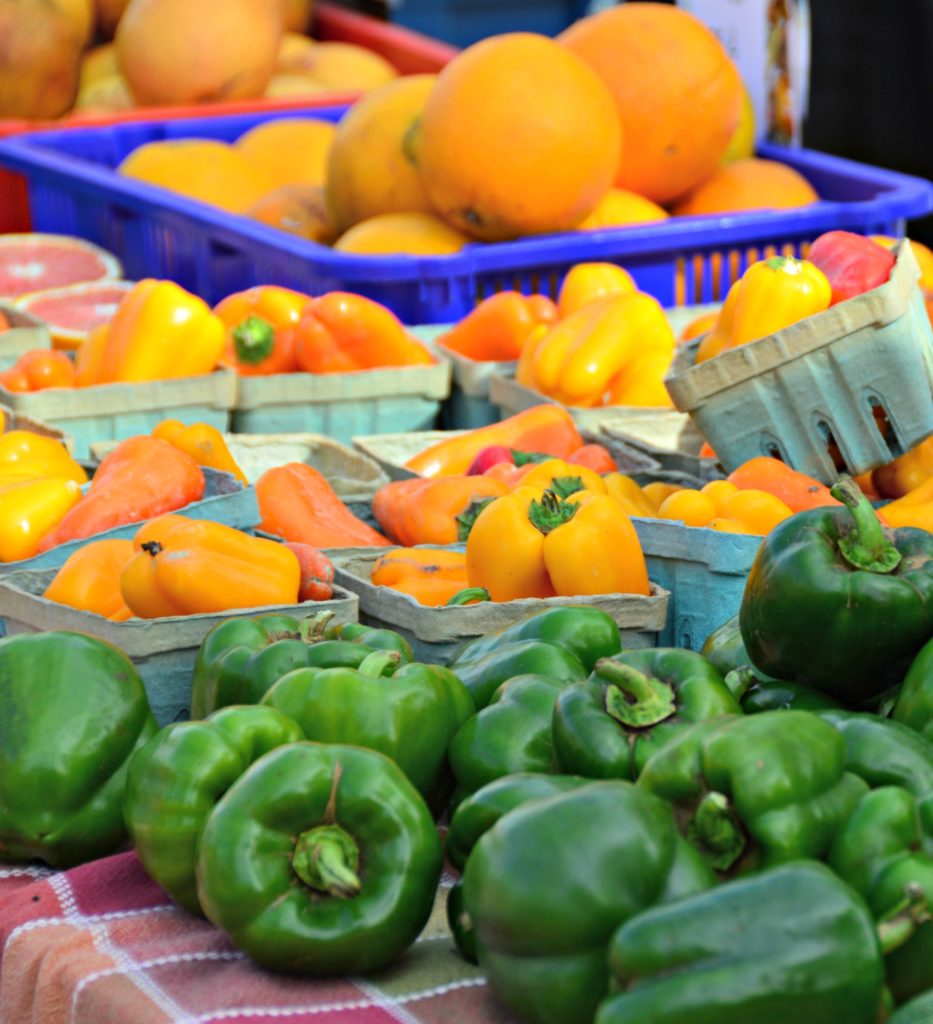
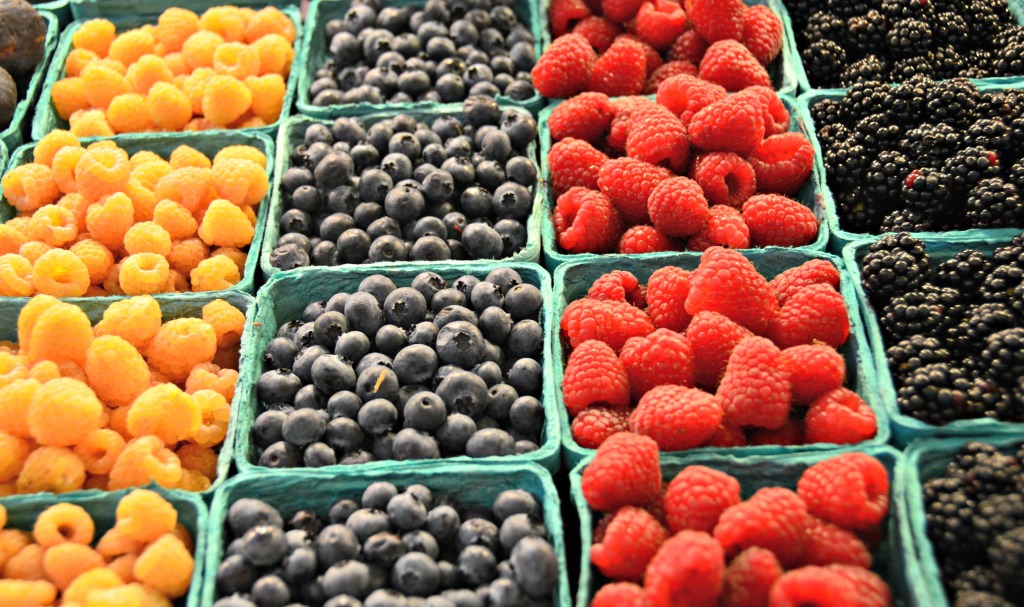
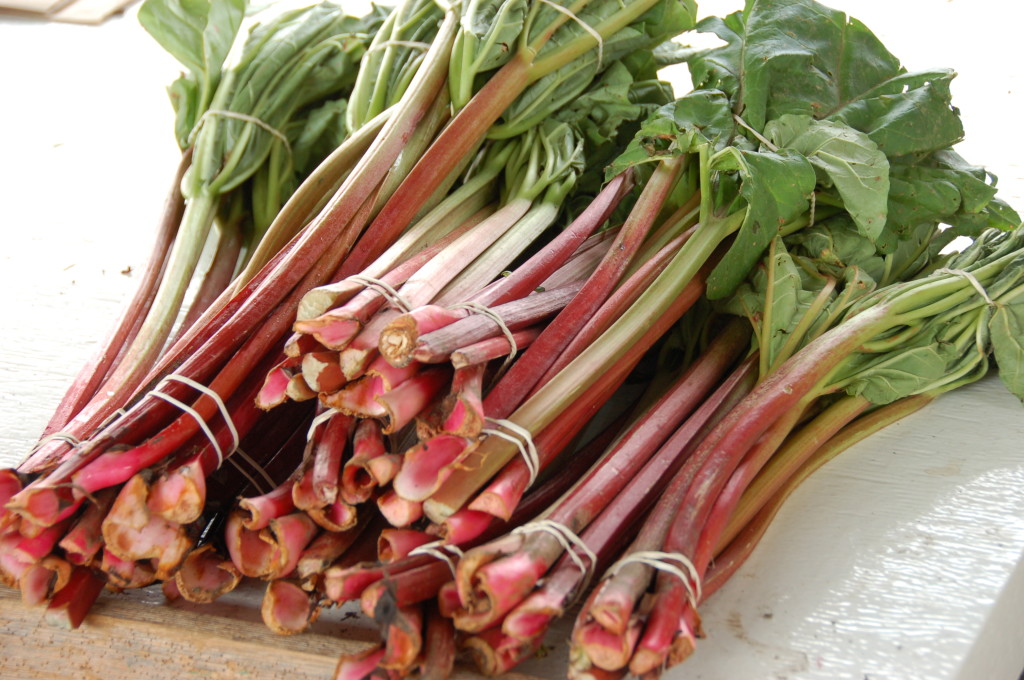
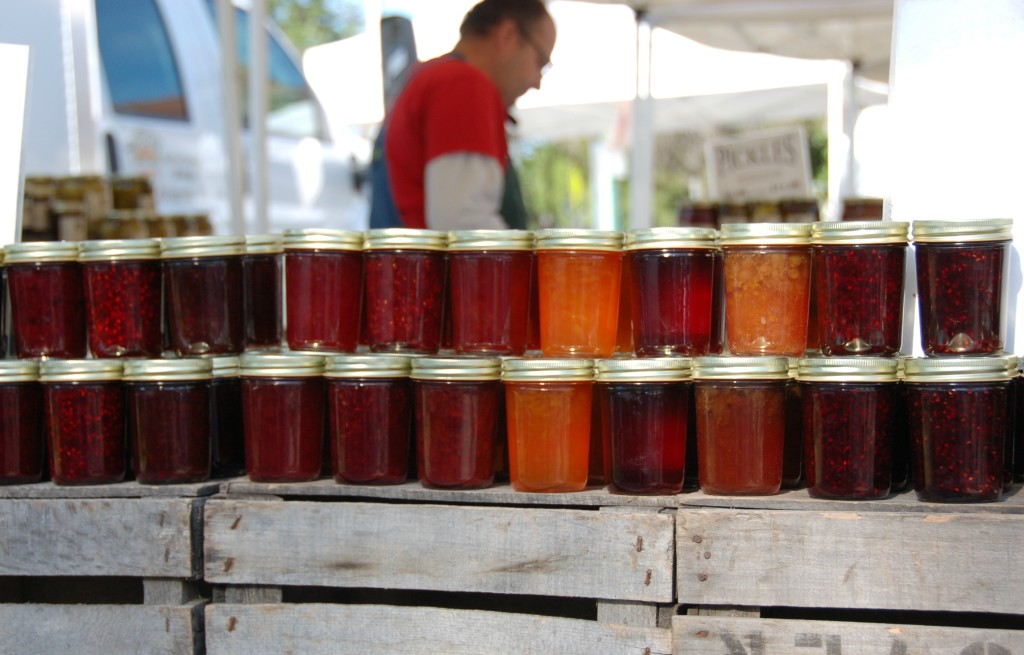


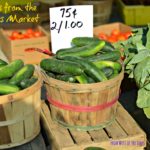
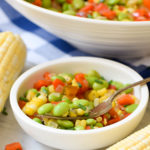


My one farmer’s market etiquette beef?I wish Oak Parkers would stop peeling the corn to see if it’s fresh. It’s not necessary and I imagine it’s wasteful.
I agree 100%. It’s not necessary to judge fresh corn and it makes the corn dry out for the person who actually buys it!
Another thing I’ve learned – don’t be afraid to ask for something you might not see… The farmer may not have brought he variety of berries you want, but they could bring them next week for you. Or if you want seconds for canning, you may be able to return at the end of the day for a nice haul. Or of you’d like a large quantity of something, ask in advance so they can bring it the following week (so they don’t run out for other shoppers).
Also: always get the asparagus.